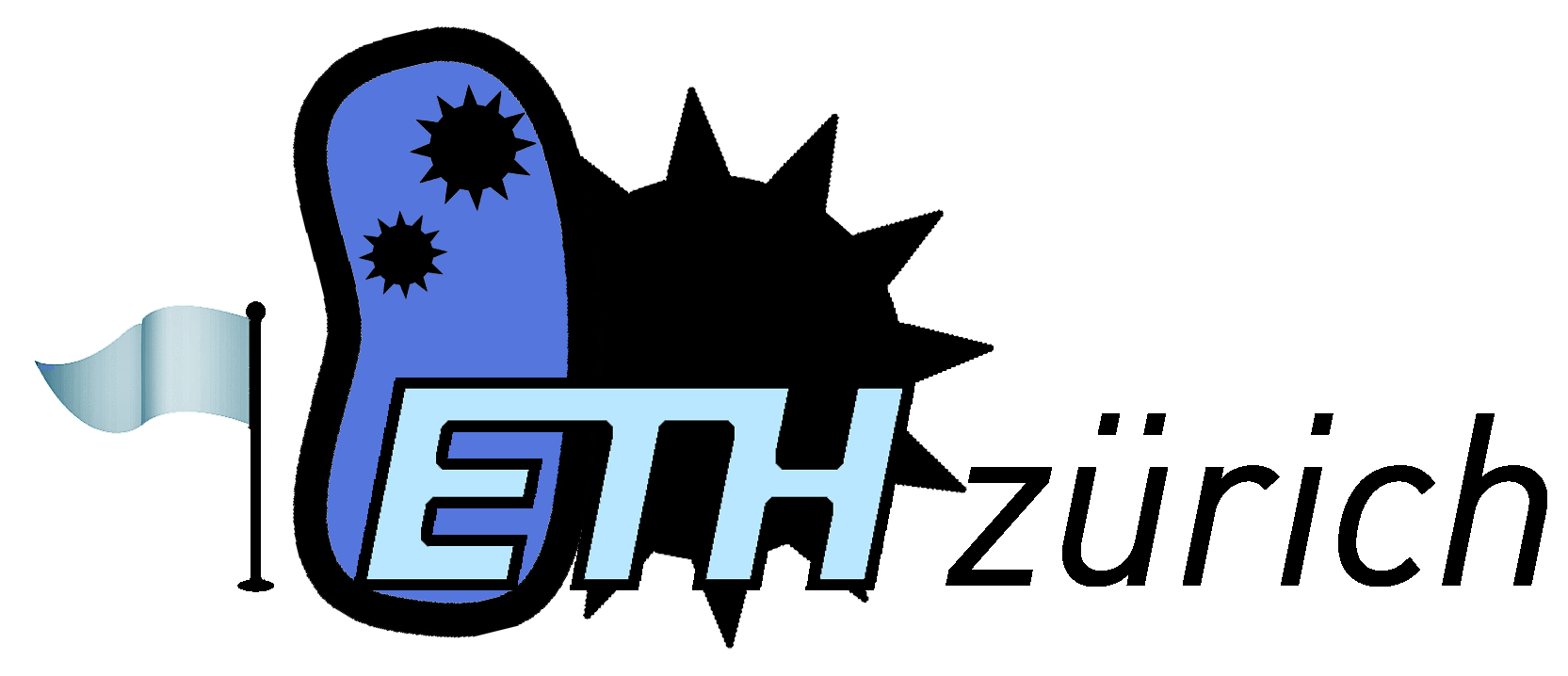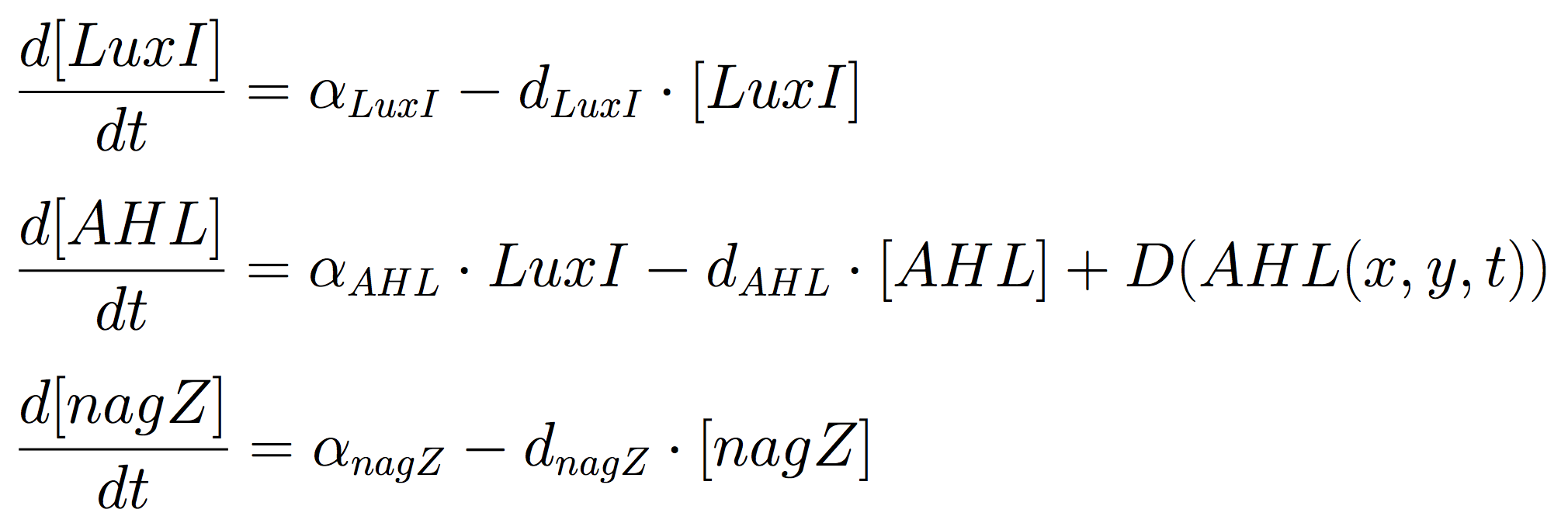Team:ETH Zurich/Modeling
From 2013.igem.org
| Line 6: | Line 6: | ||
<h1>Mine Cells</h1> | <h1>Mine Cells</h1> | ||
| - | The Mine Cells | + | The Mine Cells yield to the synthesis the signalling molecule, by constitutive expression of ''luxI'' gene. To reveal the nature of the cells, a coloured-substrate reaction is triggered upon addition of ''5-Bromo-4-chloro-3-indoxyl-N-acetyl-beta-D-glucosaminide''; given that the glycoside hydrolase [https://2013.igem.org/Team:ETH_Zurich/Experiments_4 ''NagZ''] is expressed constitutively. <br><br> The ODEs for the states involved in the sender module are given below: |
<br clear="all"/> | <br clear="all"/> | ||
[[File:eqnSender.png|500px|center|thumb|<b>Figure 3: Differential equations of the mine cells</b>]] | [[File:eqnSender.png|500px|center|thumb|<b>Figure 3: Differential equations of the mine cells</b>]] | ||
Revision as of 14:41, 12 September 2013
Circuit containing hydrolases
Mine Cells
The Mine Cells yield to the synthesis the signalling molecule, by constitutive expression of luxI gene. To reveal the nature of the cells, a coloured-substrate reaction is triggered upon addition of 5-Bromo-4-chloro-3-indoxyl-N-acetyl-beta-D-glucosaminide; given that the glycoside hydrolase NagZ is expressed constitutively.
The ODEs for the states involved in the sender module are given below:
Receiver Cells
Our Receiver cells are engineered to respond differently to high and medium concentrations of AHL. In principle, cells should be capable of discriminate between the presence of 1 or 2 mine cells around them, in the immediate vicinity.
To distinguish between AHL-levels, the expression of the hydrolases is controlled by PLuxR promoters mutants, which are sensitive to different concentration of the dimer LuxR-AHL (denoted as R) given by the number of surrounding mines.
 "
"



